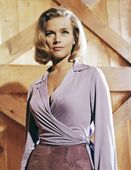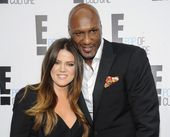Human Interest
Latest Stories

Maud Adams
1983, Octopussy, Maud Adams as Octopussy

honorblackman
1964, Goldfinger, Honor Blackman as Pussy Galore

Eva-Green-in-Casino-Royale
2006, Casino Royale, Eva Green as Vesper Lend

britt_ekland_mary_goodnight_the_man_with_the_golden_gun1
1974, The Man with the Golden Gun, Britt Ekland as Miss Mary Goodnight

102815TimNews.jpg
Tim Constantine reports on impeachment proceedings against the IRS Commissioner, Ben Carson's likability, and the Royals win Game 1 of the World Series.

TP15.jpg
What three words did George H.W. Bush say before "no new taxes" in 1988?

TP12.jpg
What Republican president once enjoyed a record 89 percent Gallup Poll approval rating?

TP07.jpg
What did Elizabeth I have removed from her palaces when her hair thinned and her cheeks hollowed?

TP06.jpg
What amendment in the U.S. Bill of Rights guarantees freedom of religion, speech and the press?

TP03.jpg
How many states were there in the Confederate States of America?

TP02.jpg
What document did President Andrew Johnson want a copy of placed under his head upon his burial?

TP01.jpg
What astronaut said all he could think about before lift-off was that "everything in the capsule was supplied by the lowest bidder"?

d977b5cf733d1b30860f6a706700b41b.jpg
In this April 30, 2012, file photo, Khloe Kardashian Odom and Lamar Odom from the show "Keeping Up With The Kardashians," attend an E! Network upfront event at Gotham Hall in New York. (AP Photo/Evan Agostini, File)

AP_769522524280.jpg
Kansas City Royals' Eric Hosmer is congratulated by teammates after hitting the game-winning sacrifice fly during the 14th inning of Game 1 of the Major League Baseball World Series against the New York Mets Wednesday, Oct. 28, 2015, in Kansas City, Mo. The Royals won 5-4 to take a 1-0 lead in the series. (AP Photo/David J. Phillip)

TexasOpenCarry.jpg
Scott Smith, a supporter of open carry gun laws, wears a pistol as he prepares for a rally at the Capitol on Jan. 26, 2015, in Austin, Texas. (Associated Press) ** FILE **

AP_495040969916.jpg
Washington Wizards' head coach Randy Wittman looks on during the first half of an NBA preseason basketball game against the Philadelphia 76ers, Friday, Oct. 16, 2015, in Philadelphia. The Wizards won 127-118. (AP Photo/Chris Szagola)

unnamed-13.jpg
Donald Trump and Michael Constantine, 12, at a Florida campaign rally before Mr. Trump hollered at him. (Photo: Dad, Tim Constantine)

AP_653719867803.jpg
Washington Wizards' John Wall shoots the ball during the second half of an NBA preseason basketball game against the Philadelphia 76ers, Friday, Oct. 16, 2015, in Philadelphia. The Wizards won 127-118. (AP Photo/Chris Szagola)

acs-900-photo.jpg
Elizabeth Fadoju


